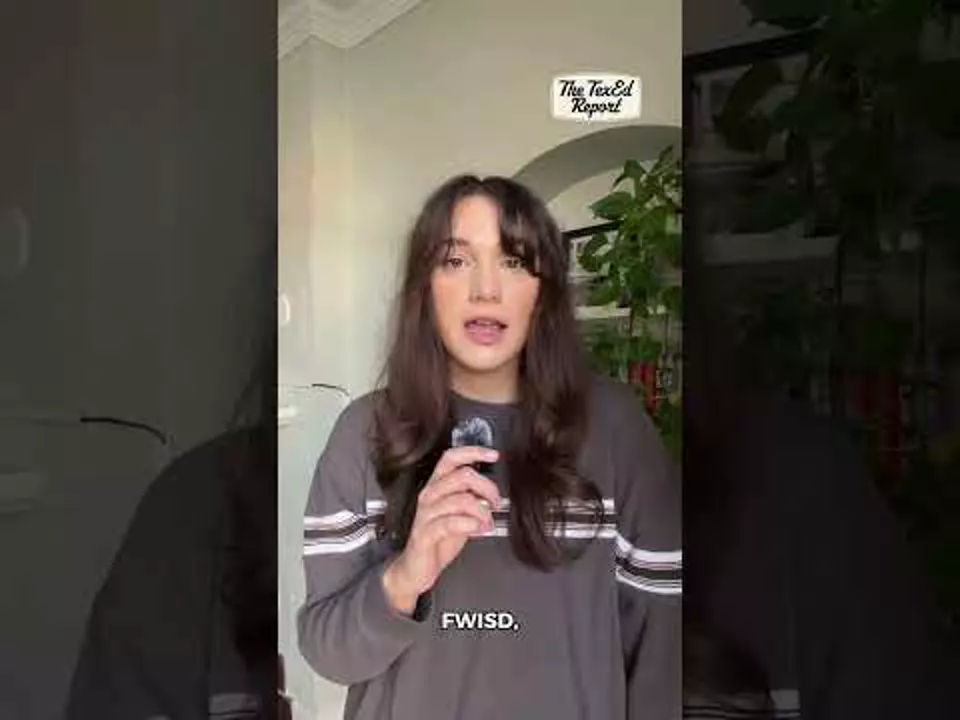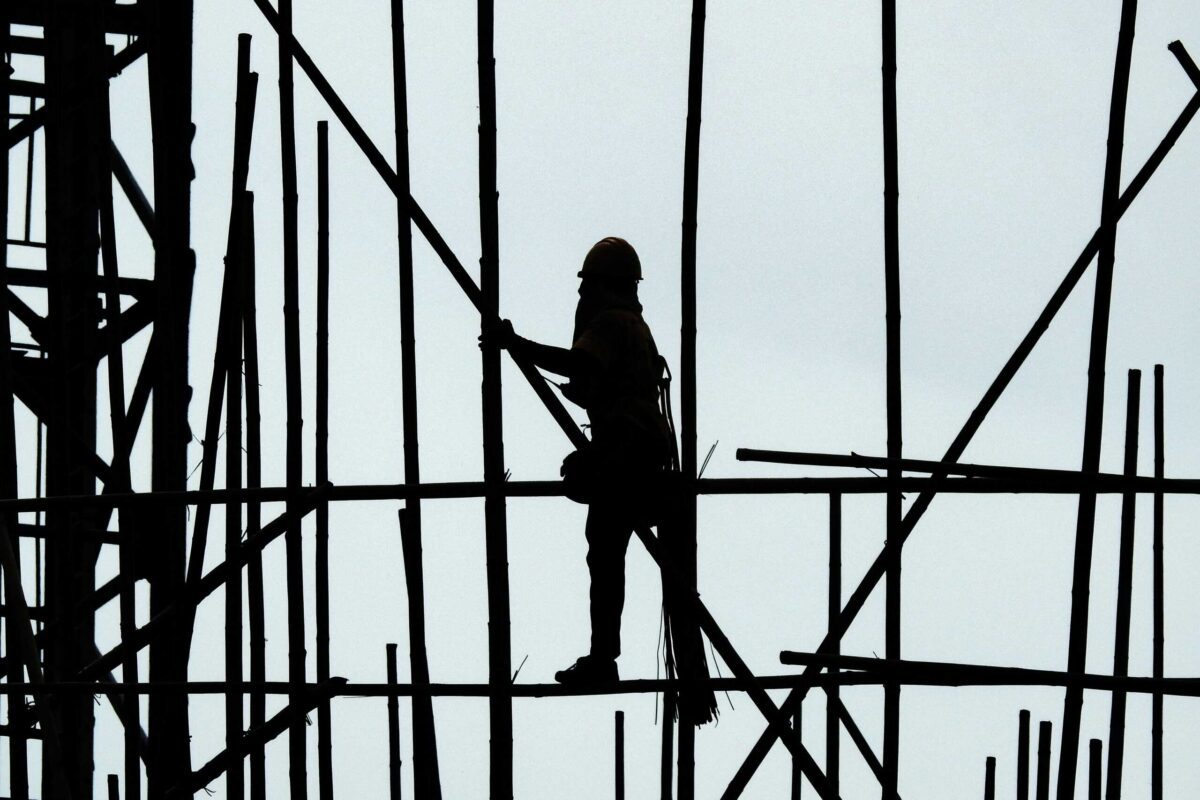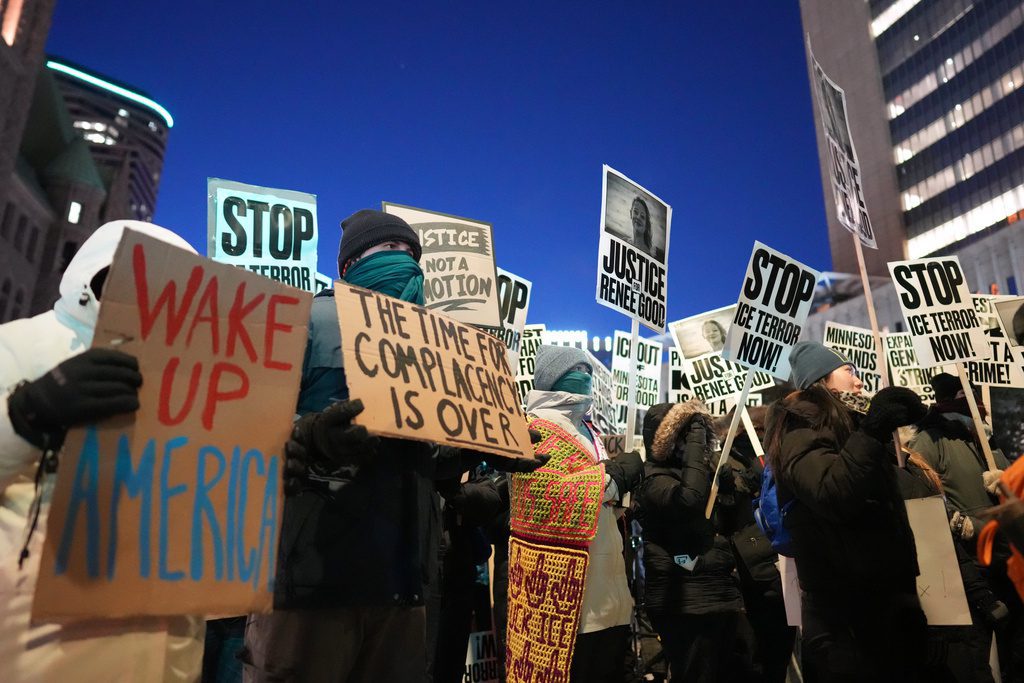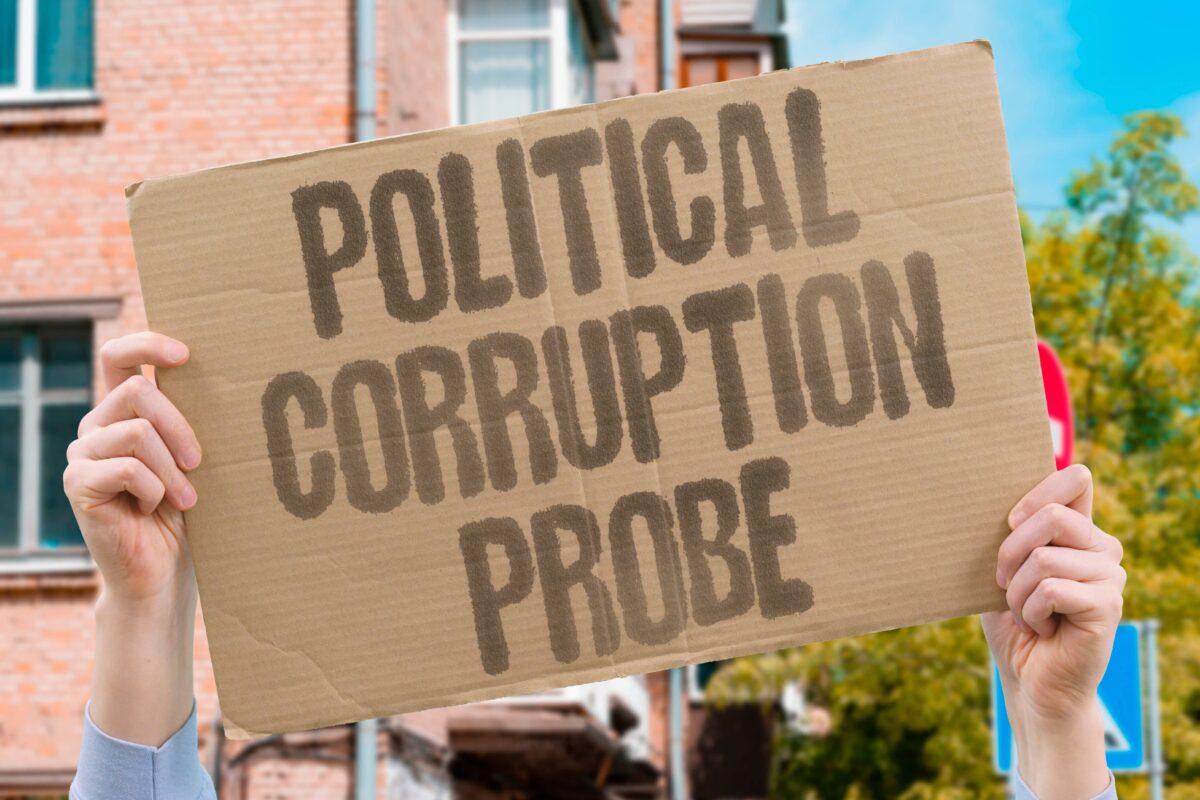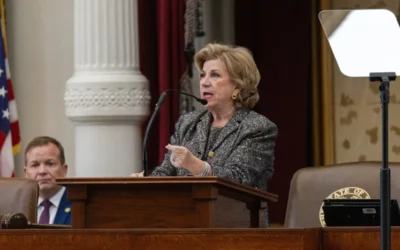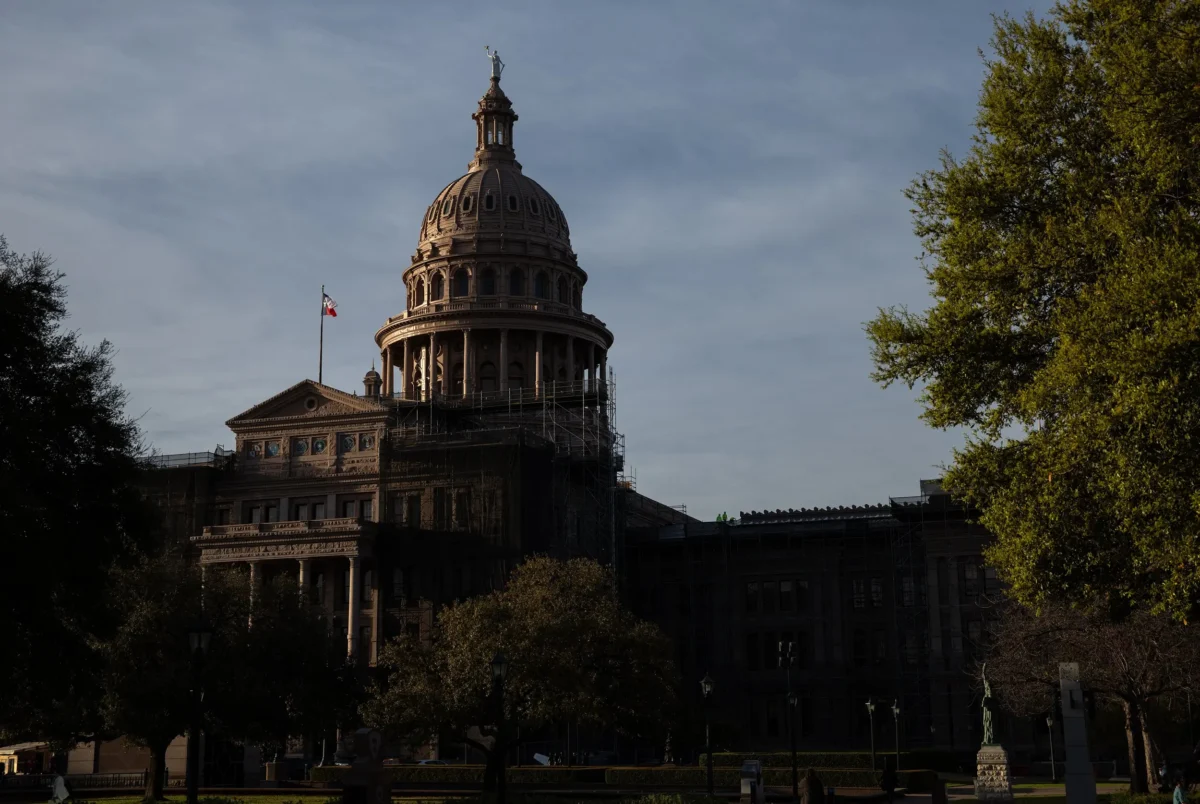
The Capitol dome from the north side of the complex in Austin on March 18, 2025. (Kaylee Greenlee/The Texas Tribune)
By María Méndez, The Texas Tribune
“17 statewide propositions will appear on the November ballot. Here’s what Texas voters need to know.” was first published by The Texas Tribune, a nonprofit, nonpartisan media organization that informs Texans — and engages with them — about public policy, politics, government and statewide issues.
Sign up for The Brief, The Texas Tribune’s daily newsletter that keeps readers up to speed on the most essential Texas news.
On Nov. 4, Texas voters will get the final say on 17 constitutional amendments — usually listed as statewide propositions at the top of the ballot — including billions of dollars in property tax cuts for homeowners and businesses.
Earlier this year, a two-thirds majority of the state Legislature passed the joint resolutions calling for the constitutional amendment elections, along with the state’s budget for the next two years, which includes $51 billion for property tax cuts.
Texas lawmakers have used multibillion-dollar budget surpluses, the result of inflation and temporary federal stimulus dollars during the COVID-19 pandemic, to pay for tax cuts in recent years. Proponents of tax cuts and bans, including Gov. Greg Abbott, have said they will maintain Texas as a competitive, business-friendly state and contribute to economic growth.
But some lawmakers and budget analysts have raised concerns that passing more tax cuts, especially on school district taxes which the state helps pay for, could be unsustainable.
“We always have to kind of balance giving folks tax relief versus making sure that we still preserve revenue for those public services,” said Shannon Halbrook, a fiscal policy director for the left-leaning Every Texan.
With lots of tax cuts and tax bans, especially through these upcoming constitutional amendment elections, the state and local governments could face a hard time paying for public services such as education, health care, and infrastructure needs in the future, Halbrook said.
Officials with Texas cities and counties say they are already being forced to either cut spending or raise taxes and fees to make up for budgets stretched thin by economic uncertainty, inflation, strict state limits on property tax collections and uncertainty around future federal funds. That’s why some Texans, like voters in Austin, will also see local propositions asking them to approve increasing local property tax rates.
If the constitutional amendments are approved, a majority of state lawmakers and Texas voters would need to pass new constitutional amendments to undo measures. Constitutional amendments are the only ballot propositions Texans get to vote on at the state level and will appear on the top of voters’ ballots, above any local races or measures they may be deciding.
To weigh in on the constitutional amendments, Texas voters need to be registered to vote by Oct. 6. Early voting will run from Oct. 20-31, and election day is Nov. 4. The deadline for counties to receive applications to vote by mail is Oct. 24. For more information on voting requirements, read our guide to voting in Texas.
Here’s a brief breakdown of the constitutional amendments.
A majority of the proposed constitutional amendments are measures meant to lower taxes for various Texans, including:
- Homeowners.
- Businesses.
- Elderly and disabled homeowners.
- Spouses of veterans.
- Homeowners who had their home destroyed in a fire.
- Property owners with border security infrastructure.
- Those who sell animal feed.
Other proposed amendments would prevent the state from imposing additional taxes on:
- Personal or business capital gains.
- Securities transactions and those working in securities.
- Inheritances.
Other proposals would fund:
- Water infrastructure.
- The Texas State Technical College.
- Research on dementia treatment and prevention.
A few proposals would amend the constitution to:
- Limit when a person can be released on bail.
- Enshrine parental rights.
- Clarify citizenship requirements for Texas voters.
- Overhaul the State Commission on Judicial Conduct.
Read more below about what each proposition will look like on the ballot and what it would mean for Texans.
Proposition 1 (SJR 59): Texas State Technical College funding
/https://static.texastribune.org/media/files/190bf897ed804b96acc51d15586e6a95/030624%20Permian%20Basin%20Workforce%20EH%2051.jpg)
The ballot language: “The constitutional amendment providing for the creation of the permanent technical institution infrastructure fund and the available workforce education fund to support the capital needs of educational programs offered by the Texas State Technical College System.”
What it means: This amendment would create an endowment for the Texas State Technical College Program.
Unlike other public two-year colleges, Texas State Technical College does not have taxing authority to issue bonds, and underfunding has led to a halt in critical capital improvements. If voters approve the constitutional amendment, TSTC officials have said they will use the money to fix campus infrastructure, upgrade classroom equipment and expand its footprint across the state.
This comes after Gov. Greg Abbott made workforce training a priority during the regular legislative session. Texas employers have been signaling a decline in skilled workers for fields such as plumbing and welding, saying this could threaten Texas’ economy.
Proponents of this allocation of funds say it would help build facilities for training and close the skills gap in Texas. Critics have said creating an endowment for TSTC would limit government spending oversight and transparency. — Olla Mokhtar, Sneha Dey
Proposition 2 (SJR 18): Capital gains tax ban
The ballot language: “The constitutional amendment prohibiting the imposition of a tax on the realized or unrealized capital gains of an individual, family, estate, or trust.”
What it means: This would ban the state from taxing people or businesses on profits or potential profits from capital assets, such as investments, real estate, valuable items and certain personal property. It would also eliminate a franchise tax on business trusts, which would lead the state to lose an estimated $152,000 in revenue per fiscal year, according to the state comptroller’s office.
Proponents of the capital gains tax ban say it doubles down on the state’s income tax ban, which was approved by voters in 2019. State lawmakers suggested in an analysis they don’t want to repeat what happened in Washington state where officials there enacted a capital gains tax despite also prohibiting a state income tax. And during legislative discussions, state Rep. Giovanni Capriglione, a Republican from Southlake who sponsored the proposal, said that the franchise tax on business trusts “could be construed as a capital gains tax undermining Texas economic competitiveness.” — María Méndez
Proposition 3 (SJR 5): Bail reform
/https://static.texastribune.org/media/files/d1b653a0643baf7ffe87d58596d3deff/Bail%20Bonds%20MGO%20TT%2007.jpg)
The ballot language: “The constitutional amendment requiring the denial of bail under certain circumstances to persons accused of certain offenses punishable as a felony.”
What it means: This proposition would require judges to deny bail in certain cases for individuals accused of committing specific felonies, such as murder, aggravated assault and indecency with a child. The state would have to demonstrate that bail is not enough to prevent the defendant from being a flight or public safety risk. Defendants, who are legally presumed innocent, would also be entitled to the right to an attorney during their bail hearings.
The proposal is part of a broad legislative package that Texas Republican leaders have said is needed to reduce violent crimes committed by people out on bond and to curb the ability of “activist judges” to set “weak bail.” Civil rights groups said keeping more people behind bars would add to overcrowded jails without actually improving public safety, while also pointing to a U.S. Supreme Court ruling that says “liberty is the norm, and detention prior to trial or without trial is the carefully limited exception.”
Under the Texas Constitution, most defendants have the right to be released on bail except for certain cases, such as those charged with capital murder or accused of certain repeat felonies. — Alex Nguyen
Proposition 4 (HJR 7): Water infrastructure funding
/https://static.texastribune.org/media/files/009059125e7beb79c531e28bf00c404d/0409%20Lake%20o%20the%20Pines%20ST%2023.jpg)
The ballot language: “The constitutional amendment to dedicate a portion of the revenue derived from state sales and use taxes to the Texas water fund and to provide for the allocation and use of that revenue.”
What it means: Texas’ water supply is facing numerous threats, including an increasing demand for water due to rapid population growth, millions of gallons of water leaking out of old infrastructure, and climate change contributing to more droughts and altering precipitation patterns. By one estimate, the state’s municipal supply will not meet demand by 2030 if a major drought were to hit the state and no water solutions are implemented.
A Texas 2036 report estimated that the state needs nearly $154 billion by 2050 for water infrastructure, including $59 billion for water supply projects, $74 billion for leaky pipes and infrastructure maintenance, and $21 billion to fix broken wastewater systems.
To help the state boost and protect its water supply, state lawmakers are asking voters to approve $20 billion for water projects over the next two decades. If approved, up to $1 billion of sales tax revenue would be deposited into the Texas Water Fund each year starting in 2027. The money would go to fixing aging pipes and other infrastructure; developing and increasing new water sources, such as desalination; flood mitigation projects; and supporting conservation efforts to help meet water demands.The amendment would also give the Texas Water Development Board flexibility in distributing funds. — Alejandra Martinez
Proposition 5 (HJR 99): Tax exemption on animal feed
/https://static.texastribune.org/media/files/edaa2a3c2cd99a3be1a23f36a9b90401/Powell%20Ranch%20EL%2006.jpg)
The ballot language: “The constitutional amendment authorizing the legislature to exempt from ad valorem taxation tangible personal property consisting of animal feed held by the owner of the property for sale at retail.”
What it means: This constitutional amendment would allow state lawmakers to extend tax exemptions on animal feed to include when animal feed is held as inventory to be sold. State Rep. Cody Harris, R-Palestine, noted animal feed is already typically tax exempt when it is harvested or purchased by a farmer or rancher.
If the constitutional amendment is approved, accompanying legislation from Harris would exempt animal feed inventory from property taxes. That would lower local property tax revenue and require the state to help school districts make up for that loss, but those costs are not expected to be significant, according to a fiscal note from the state’s Legislative Budget Board.
Only a few individuals registered against the proposed constitutional amendment during legislative committee hearings. Critics have said this gives animal feed sellers an unfair advantage, according to the House Research Organization. — María Méndez
Proposition 6 (HJR 4): Securities tax ban
The ballot language: “The constitutional amendment prohibiting the legislature from enacting a law imposing an occupation tax on certain entities that enter into transactions conveying securities or imposing a tax on certain securities transactions.”
What it means: This proposal would prevent the state from creating new taxes on securities transactions, such as stock trading, and from taxing those who operate or work in the securities market, including financial institutions, brokers and dealers.
It was prompted by a new stock exchange expected to open in Texas and to protect investments, including retirement accounts and pensions, following discussions of taxing financial transactions in other states, according to analysis of the resolution calling for the constitutional amendment.
A few individuals registered against the proposal during legislative committee hearings, and critics have said the state could benefit from these taxes should it need to raise more revenue in the future, according to the House Research Organization. — María Méndez
Proposition 7 (HJR 133): Tax exemption for veterans’ spouses
The ballot language: “The constitutional amendment authorizing the legislature to provide for an exemption from ad valorem taxation of all or part of the market value of the residence homestead of the surviving spouse of a veteran who died as a result of a condition or disease that is presumed under federal law to have been service-connected.”
What it means: This change would allow state lawmakers to give property tax breaks on homes to the un-remarried spouses of U.S. veterans who the federal government determined died in connection to their service. State Rep. Chris Turner, D-Grand Prairie, said during legislative discussions that the change is meant to align Texas with a more recent federal law that expanded benefits for veterans exposed to toxic substances during their service.
Accompanying legislation by Turner would exempt qualifying spouses of veterans from paying any property taxes on their home if they have not remarried. The state would have to make up the reduced property tax revenue for local school districts, but it is not expected to be a significant cost, according to a fiscal note from the state’s Legislative Budget Board. An estimated 3,000 spouses could potentially benefit from the exemption, according to the fiscal note. — María Méndez
Proposition 8 (HJR 2): Inheritance tax ban
/https://static.texastribune.org/media/files/ccd9f39355ce555b213131e45ed2e541/Austin%20Cemeteries%20EG%20TT%2016)
The ballot language: “The constitutional amendment to prohibit the legislature from imposing death taxes applicable to a decedent’s property or the transfer of an estate, inheritance, legacy, succession, or gift.”
What it means: Though Texas does not currently have an inheritance tax, this measure aims to prevent lawmakers from trying to impose a tax on an estate or when an estate or inheritance is transferred. It would not eliminate other existing taxes that can be associated with an inheritance, such as unpaid property taxes, according to committee discussions on the proposal. Critics of this constitutional amendment have said it is unnecessary and would limit state lawmakers in the future, according to the House Research Organization. — María Méndez
Proposition 9 (HJR 1): Inventory and equipment tax exemption
The ballot language: “The constitutional amendment to authorize the legislature to exempt from ad valorem taxation a portion of the market value of tangible personal property a person owns that is held or used for the production of income.”
What it means: This amendment, along with accompanying legislation, would exempt up to $125,000 of businesses’ inventory or equipment from being taxed by school districts, cities, counties or any other taxing entity. Under current law, businesses don’t have to pay taxes on that property if it’s worth $2,500 or less.
The state would help pick up the tab for the amount of property tax revenue school districts would lose. This would cost the state an estimated $193.5 million from general revenue in 2027 and more than $100 million annually from general revenue in subsequent fiscal years, according to a fiscal note from the Legislative Budget Board. Other taxing entities like cities and counties would either have to raise tax rates to make up for the lost revenue, or go without it.
Critics, including some local officials, have noted that the tax cuts could be applied by businesses at multiple locations, according to the House Research Organization. Proponents, including several business and industry associations, have said eliminating administrative and tax burdens for businesses would contribute to economic growth that could outweigh local revenue losses. Recapture payments, or the tax revenue that school districts with higher property values send back to the state to help fund poorer school districts, would also go down. — María Méndez, Joshua Fechter
Proposition 10 (SJR 84): Tax exemption for homes destroyed by fire
/https://static.texastribune.org/media/files/1b9ed2986bec48088144db52801e6fd4/0301%20Wildfires%20McBroom%20JR%2016.jpg)
The ballot language: “The constitutional amendment to authorize the legislature to provide for a temporary exemption from ad valorem taxation of the appraised value of an improvement to a residence homestead that is completely destroyed by a fire.”
What it means: This amendment and accompanying legislation would create a process to temporarily lower property taxes on homes destroyed by fire. Homeowners could apply for an adjusted tax bill on the restored home for the year in which the fire occurred, according to the accompanying legislation. To qualify, the homeowner’s home would have to remain uninhabitable for at least 30 days after the fire. These property tax bill reductions could lower local tax revenue and require the state to help make up for school districts’ losses, but potential costs for the state could not be calculated, according to the legislation’s fiscal note. — María Méndez
Proposition 11 (SJR 85): School tax exemption for the elderly or disabled homeowners
The ballot language: “The constitutional amendment authorizing the legislature to increase the amount of the exemption from ad valorem taxation by a school district of the market value of the residence homestead of a person who is elderly or disabled.”
What it means: This constitutional amendment would allow the state to raise a homestead exemption, a discount on school property taxes that lowers how much of a home’s value can be taxed to pay for public schools. The increased exemption would shave off $60,000 from the taxable value of elderly or disabled Texans’ homes, rather than just $10,000 under the current exemption.
Coupled with another homestead exemption generally available to Texas homeowners, which lawmakers are also asking voters to increase to $140,000 through another ballot proposition, elderly or disabled Texans could get homestead exemptions of up to $200,000 if the other proposition is also approved by voters.
If the increased exemption for elderly or disabled homeowners is approved by voters, the state would have to help pay for revenue school districts lose. That could cost the state more than $1.2 billion in general revenue for the next two fiscal years and upwards of $477 million annually after that, according to a fiscal note from the state’s Legislative Budget Board. Recapture payments, or the tax revenue that school districts with higher property values send back to the state to help fund poorer school districts, would also go down.
Though these tax cuts for elderly and disabled Texans haven’t faced much public pushback, some have raised concerns that such broad exemptions could be unsustainable for the state to pay for in the future. — María Méndez, Joshua Fechter
Proposition 12 (SJR 27): Changing the State Judicial Conduct Commission
/https://static.texastribune.org/media/files/cf68344de35d033e9b6d3146a05b6d00/0109%20TSC%20ERCOT%20Hearing%20EL%20TT%2001.jpg)
The ballot language: “The constitutional amendment regarding the membership of the State Commission on Judicial Conduct, the membership of the tribunal to review the commission’s recommendations, and the authority of the commission, the tribunal, and the Texas Supreme Court to more effectively sanction judges and justices for judicial misconduct.”
What it means: This amendment would change the make-up of Texas’ State Commission on Judicial Conduct and related processes and powers.
Currently, the State Commission on Judicial Conduct is made up of the following:
- six judges from six different court levels,
- two attorneys appointed by the State Bar of Texas who aren’t judges, and
- five citizens appointed by the governor who are at least 30 years of age and aren’t attorneys or judges.
If approved, the constitutional amendment would beef up the citizen representation on the commission by changing the makeup to:
- six judges or justices of courts appointed by the Texas Supreme Court of, two of whom would have to be trial court judges (judicial members of the commission would not be allowed to be judges in the same type of court), and
- seven citizens appointed by the governor, who are at least 35 years of age.
Commission members would still have to be confirmed by the Texas Senate.
Other significant changes to the judicial conduct review process would tweak how the chief justice of the Texas Supreme Court selects review tribunals. These tribunals, made up of seven Court of Appeals justices, review the commission’s recommendation for the removal or retirement of a judge. The amendment would also adjust when and how the commission and review tribunal would have to discipline judges, including in some cases by prohibiting a person from holding judicial office in the future.
The terms of the current commissioners would expire by July 2026. A temporary provision in the constitutional amendment would authorize the Texas Supreme Court and the governor to begin appointing additional commissioners with staggered terms, of either six, four or two years, beginning in 2026.
Proponents of the proposed changes said they would promote transparency and accountability in the judicial system and allow judicial misconduct to be addressed fairly and swiftly. Some critics said that increasing the number of members of the public on the commission could politicize the judicial discipline process, according to the House Research Organization. — María Méndez
Proposition 13 (SJR 2): Increased school tax exemption for homeowners
/https://static.texastribune.org/media/files/3db1cc009f8da76a42de3ad50326b38a/0723%20SEISD%20JH%2034.jpg)
The ballot language: “The constitutional amendment to increase the amount of the exemption of residence homesteads from ad valorem taxation by a school district from $100,000 to $140,000.”
What it means: This constitutional amendment would allow Texans who own their home to see a boost in the state’s homestead exemption, or the slice of a home’s value that can’t be taxed to pay for public schools. The proposal would shave off $140,000 off the taxable value of the home, instead of the current $100,000.
The owner of a typical Texas home — valued at $302,000 last year, according to Zillow — would have saved about $490 on their school property taxes had the higher exemption been in place last year, a Tribune calculation shows. Those savings result from a combination of the increased homestead exemption and cuts to school tax rates in the state’s upcoming two-year budget.
Accompanying legislation would put the state on the hook for the revenue school districts lose if the increased exemption passes. That’s estimated to cost the state more than $2.7 billion in general revenue for the 2026-2027 budget cycle and more than $1 billion annually after that, according to the fiscal note for the accompanying school finance legislation. Recapture payments, or the tax revenue that school districts with higher property values send back to the state to help fund poorer school districts, would also go down.
Some critics have said the state should do more to limit local tax rates and spending so that tax bills don’t continue to rise, according to the House Research Organization. — María Méndez, Joshua Fechter
Proposition 14 (SJR 3): Funding for dementia research and prevention
/https://static.texastribune.org/media/files/2e49892d718232acbc8fe0dc407fcb5a/Abbott%20DOGE%20KCG%20TT%2014.jpg)
The ballot language: “The constitutional amendment providing for the establishment of the Dementia Prevention and Research Institute of Texas, establishing the Dementia Prevention and Research Fund to provide money for research on and prevention and treatment of dementia, Alzheimer’s disease, Parkinson’s disease, and related disorders in this state, and transferring to that fund $3 billion from state general revenue.”
What it means: This amendment would provide $3 billion to create the Dementia Prevention and Research Institute of Texas to study dementia, Alzheimer’s, Parkinson’s disease and other brain related conditions. The measure received bipartisan support from a majority of lawmakers and was one of Lt. Gov. Dan Patrick’s legislative priorities.
If voters approve the constitutional amendment, an initial $3 billion in state surplus revenue would be transferred to the fund, and a board appointed by Patrick, House Speaker Dustin Burrows, R-Lubbock, and Gov. Greg Abbott would be set up to approve research proposals. Going forward, the institute would receive up to $300 million annually. This funding is intended to attract physicians, researchers, and experts to Texas.
The fund and institute are modeled after the state’s Cancer Research and Prevention Institute, which has become the country’s second largest funder of cancer research. — Olla Mokhtar, Terri Langford
Proposition 15 (SJR 34): Codifying parental rights
The ballot language: “The constitutional amendment affirming that parents are the primary decision makers for their children.”
What it means: This proposal would include parental rights, as currently outlined out in federal case law, in the Texas Constitution. The intent of the amendment is to protect parental rights since “case law can change and disappear over time with the appointment of new judges,” according to an analysis of the legislation.
The constitution would be amended to include the following: “Provides that, to enshrine truths that are deeply rooted in this nation’s history and traditions, the people of Texas hereby affirm that a parent has the responsibility to nurture and protect the parent’s child and the corresponding fundamental right to exercise care, custody, and control of the parent’s child, including the right to make decisions concerning the child’s upbringing.”
Some questions were raised during legislative discussions about how the proposal would ensure children’s voices are also heard. — María Méndez
Proposition 16 (SJR 37): Clarifying citizenship requirement for voters
The ballot language: “The constitutional amendment clarifying that a voter must be a United States citizen.”
What it means: This amendment would add language to the Texas Constitution to explicitly say that “persons who are not citizens of the United States” cannot vote in the state. Though U.S. citizenship is already required to register to vote in Texas, this amendment aims to prevent local governments in Texas from allowing local residents who are not citizens to vote in local elections and comes in response to other states passing such policies, according to analysis of the legislation.
Critics of the measure said it is redundant and unnecessary. — María Méndez
Proposition 17 (HJR 34): Property tax exemption for border security infrastructure
/https://static.texastribune.org/media/files/ba6d188983cf4a230869e77963423a1e/1126%20GLO%20Starr%20Land%20EG%2018.jpg)
The ballot language: “The constitutional amendment to authorize the legislature to provide for an exemption from ad valorem taxation of the amount of the market value of real property located in a county that borders the United Mexican States that arises from the installation or construction on the property of border security infrastructure and related improvements.”
What it means: This proposal and accompanying legislation would allow the state to prevent property value in border counties from increasing due to border security infrastructure and related improvements.
This new exemption could reduce local tax revenue, but costs to the state to help address school district losses are not expected to be significant, according to a fiscal note. Other local governments may have to raise tax rates to offset the losses, according to the fiscal note.
Proponents of the measure say this will address concerns that border security infrastructure added to private land by the state could increase that property’s appraisal and burden on property owners, according to the House Research Organization. Critics have said the state should not incentivize more border security infrastructure on private land and that the change could shift the tax burden to other local property owners. — María Méndez
Disclosure: Every Texan, State Bar of Texas and Texas 2036 have been financial supporters of The Texas Tribune, a nonprofit, nonpartisan news organization that is funded in part by donations from members, foundations and corporate sponsors. Financial supporters play no role in the Tribune’s journalism. Find a complete list of them here.
This article originally appeared in The Texas Tribune at https://www.texastribune.org/2025/09/22/texas-statewide-propositions-november-ballot-election/.
The Texas Tribune is a member-supported, nonpartisan newsroom informing and engaging Texans on state politics and policy. Learn more at texastribune.org.






